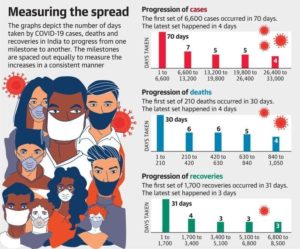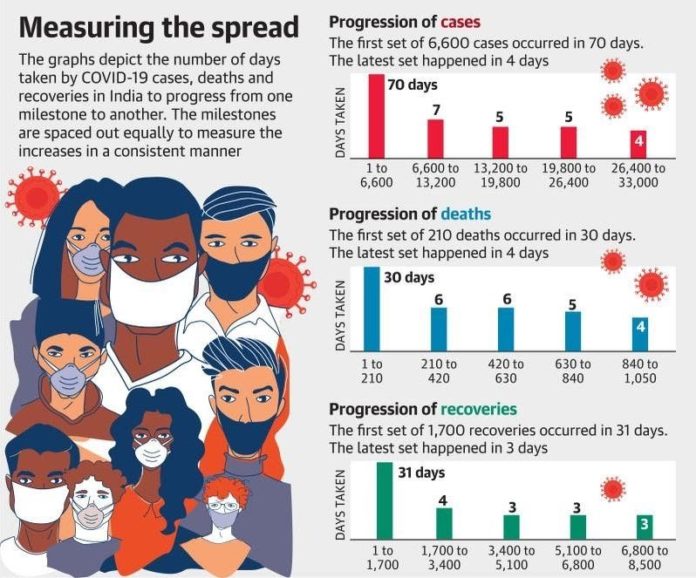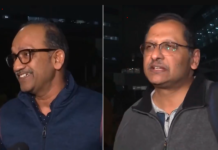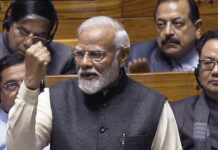
India reported 1,823 new COVID-19 cases in the last 24 hours, taking the total number of cases to 33,610 on Thursday with 8,373 recoveries. An additional 71 deaths have now taken the total number of fatalities to 1,074.
The deaths that have occured since Wednesday include 32 from Maharashtra, 16 from Gujarat, 11 from Madhya Pradesh and three from Uttar Pradesh, the Union Health Ministry reported.
The highest number of confirmed cases in the country are from Maharashtra at 9,915, followed by Gujarat at 4,082, Delhi at 3,439, Madhya Pradesh at 2,660, Rajasthan at 2,438, Uttar Pradesh at 2,203 and Tamil Nadu at 2,162. The number has gone up to 1,403 in Andhra Pradesh and 1,012 in Telangana.
The country is currently recording a total recovery rate of 25.19% up from 13% about two weeks ago, the Union health Ministry said.
India has a case fatality rate of 3.2% currently which is 65% male and 35% female. The death rate is less than 14% in persons under 45, 34.8% in the 45-60 age group. Co-morbidities were found in 78% of COVID-19 fatalities, Joint Secretary in the Health Ministry Luv Agarwal said.
The national average is 11 days presently as compared to 3.4 days before lockdown according to a analysis that was conducted across the country.
States/UTs having doubling rate between 11 and 20 days include Delhi, Uttar Pradesh, J&K, Odisha, Rajasthan, Tamil Nadu and Punjab. Those having doubling rate between 20 days to 40 days are Karnataka, Ladakh, Haryana, Uttarakhand and Kerala.
Assam, Telangana, Chhattisgarh, and Himachal Pradesh have a doubling rate of more than 40 days, as per data released by the Health Ministry.
“States are advised to ensure that all health facilities, especially in the private sector, remain functional and provide critical services so that such patients who need these critical services do not face any difficulty. States are also informed that it is noticed that many hospitals in the private sector are hesitant to provide critical services like dialysis, blood transfusion, chemotherapy and institutional deliveries to their regular patients, which is not acceptable,” said Mr. Agarwal.












